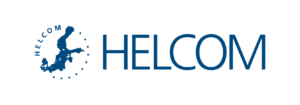Suppressing harmful underwater noise in the Baltic Sea tops the agenda of the HELCOM Pressure group this week, as the practical work for creating a regional register of impulsive sounds kick-starts. The occurrence of such abrupt sounds, challenging to measure, is planned for national reporting in a jointly agreed manner, and the register contributes to the overall task of minimizing the negative impact of underwater noise on marine life.Construction is one source of underwater noise. Photo: Flickr/Thomas DämmrichRepresentatives of scientific and policy institutions from the Baltic littoral states will take part in the 3-day Pressure group meeting, held in Copenhagen, Denmark, to review and assess the impact of pressures mainly from input of hazardous substances and nutrients, littering of marine environment and dredging activities. The Meeting will be chaired by Lars Sonesten from the Swedish University of Agricultural Sciences. The Meeting follows up on the commitment to set up the impulsive sound register by the end of 2016, along with other noise management measures, as agreed by the HELCOM 2013 Ministerial Meeting. The new HELCOM Experts Network on Underwater Noise is about to start hands-on activities, the topmost goal being a Roadmap to building a knowledge base on underwater noise. The Network will prepare the short term Roadmap for 2015–17 and look after its implementation. Moreover, the Meeting will review the ongoing work to prepare a region-wide HELCOM indicator for ambient noise, referring to continuous low frequency anthropogenic sound. As the biotopes of the Baltic seafloor are negatively affected by several human activities such as dredging, construction, fishing with bottom contact fishing gear and extraction of sand and gravel, the Meeting will inspect the latest concerned information submitted by the countries. An updated report on disposal of dredged material at sea for 1999–2013 has been submitted for the Meeting, which is invited to identify any hindrances for reporting comprehensive and reliable information in due time. The packed agenda of the Meeting will, among others, also address several sites which have been proposed for deletion from the HELCOM Hot Spot list. The four suggested Hot Spots, aka significant pollution sites in the Baltic Sea region, concern the following Polish sites: Plaszow waste water treatment plant (WWTP) in Krakow; left-bank WWTP in Poznan; Czajka, Poludnie and Pancerz WWTPs in Warsaw; and Hajdow WWTP in Lublin. Other points of consideration of the Meeting include marine litter and the progress in implementation of the recently adopted Regional Action Plan; further development of the HELCOM Recommendation on sewage sludge handling; and reviewing the priority hazardous substances which are to be assessed by HELCOM in the future. * * * Note for editorsThe Baltic Marine Environment Protection Commission, usually referred to as , is an intergovernmental organization of the nine Baltic Sea coastal countries and the European Union working to protect the marine environment of the Baltic Sea from all sources of pollution and to ensure safety of navigation in the region. Since 1974, HELCOM has been the governing body of the ‘Convention on the Protection of the Marine Environment of the Baltic Sea Area’, more commonly known as the Helsinki Convention. The Working Group on Reduction of Pressures from the Baltic Sea Catchment Area – – focuses on nutrient and hazardous substance inputs from diffuse sources and point sources on land, including the follow-up of the implementation of the HELCOM nutrient reduction scheme. The group ensures the necessary technical underpinning as well as develops solutions to the policy-relevant questions and needs. Marine litter and underwater noise are also coordinated by this group. * * * For more information, please contact:Dmitry Frank-KamenetskyProfessional SecretaryHELCOMTel: +358 40 630 9933Skype: helcom68E-mail: dmitry.frank-kamenetsky(at)helcom.fi Johanna LaurilaInformation SecretaryHELCOMTel: +358 40 523 8988Skype: helcom70E-mail: johanna.laurila(at)helcom.fi
Suppressing harmful underwater noise in the Baltic Sea tops the agenda of the HELCOM Pressure group this week, as the practical work for creating a regional register of impulsive sounds kick-starts.

